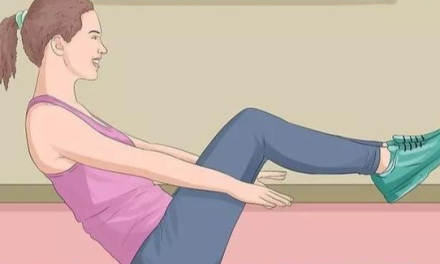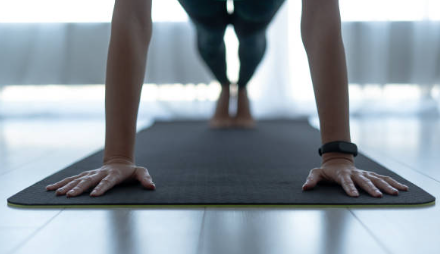Have you ever heard complaints like, “Oh, I’ve put on weight recently”, “I’m so busy and tired at work every day, so why am I getting fatter?”, “Why do you get fatter the longer you work?” If you’re one of those people, chances are, you’re suffering from overwork obesity!
Today I will talk to you about this topic, how to prevent “overwork fat”!
Overwork is very common in today’s workplace. It refers to the phenomenon that the longer and busier you work, the fatter you get. Research has even been done to suggest that nearly 60 percent of professionals say they have gained weight since working. There is no way to know this number, but judging from the people around us, it is reliable. So what’s the cause of overwork? Let’s break it down:
First, lack of exercise
This is best understood. We can’t afford to sit when we get to work, we can’t walk when we can drive, we can’t take the stairs when we can get to the elevator, and we can’t sit when we can lie down when we get home. Under these conditions, our bodies may only consume 6-70 percent of their daily energy intake, leaving the rest to be stored as fat.
Second, gastrointestinal vitality decreased
Gastrointestinal peristalsis requires external force, shaking and squeezing when walking, climbing and running. If you stay in the same position for a long time, you can only rely on the internal power of the body to promote the movement of the viscera, without external help. Coupled with long-term stay up, irregular diet, smoking and drinking, the internal motivation becomes insufficient, the gastrointestinal motility is more slow. Right now, a lot of food cannot digest and discharge, can form flatulence, constipation, look from the appearance, also can appear fat; In addition, according to traditional Chinese medicine, due to the dysfunction of the spleen and stomach, the heat energy eaten can not be well transported away, is able to stagnation in the body, in the form of fat accumulation.
Third, the diet is not reasonable
No sleep at night, no sleep in the morning. This is the modern norm. In order to be in a hurry in the morning, he may not have breakfast, can only buy bread on the side of the road, the whole morning brain in a state of energy supply, his only thought is to eat quickly, seize the energy; I finally got to noon, and I was very hungry, but I had no time for lunch, so I gobbled it up. At this point, the brain is numb to “full”, it is concerned with as much as possible to supplement food, to prevent hunger, and until the feeling of full, actually has eaten full; When you get home and have a busy day, make sure you reward yourself. So he ate until he could not lower his head. That such a day, the total amount of food is far more than needed, so can only pile up on the body, produce obesity.
Fourth, too much pressure
When we’re stressed, our bodies secrete cortisol, a stress response hormone. That’s what “Desperado” uses! It will protect us at a critical time. But if it is produced in large quantities over a long period of time, the body can’t stand it, and its negative effects show up: increased blood sugar, increased appetite, increased weight, and subsequently obesity. In addition, excessive cortisol production can lead to loss of libido and extreme fatigue. Are these common dilemmas faced by today’s professionals?
Fifth, stay up for a long time
A lack of sleep can make you more likely to put on weight because it affects the balance of a hormone that is important in regulating weight. Leptin, which makes you thin, decreases and gut-brain peptide, which makes you want to eat, increases significantly. In other words, sleep deprivation makes you hungrier, less full, and more likely to gain weight. The old saying “sleep is not enough, eat up” means just that. In addition, lack of sleep will also reduce self-control, more prone to overeating
Sixth, too many fat people around
You will be familiar with the saying that man is a product of his environment. Have you ever heard of a famous psychological experiment, the Stanford Prison Experiment, in which a group of volunteers were placed in a simulated prison, part of them dressed as police officers, part of them dressed as prisoners. In the beginning, it was cool. It was fun. However, in the end, there will be the same phenomenon as the prisons in the United States, such as insults, fights, abuse, insults, etc., which can no longer be controlled on the sixth day, so it is forced to stop. This shows that people are deeply influenced by their surroundings. So, when you’re surrounded by fat people, it’s tempting to think that this is the way the world should be, and naturally, you’ll get fat too.
Another interesting theory is that there is a relationship between body size and microbes. Fat people and thin people have different microbial components, but they can still infect each other, and the transmission route is basically contact transmission. So if you want to be thin, don’t hang out with fat people, because their microbes will make you fatter. Be sure to find a group of thin people, eat with them, play with them, have more contact with them, then you will become thin, as for them, there is a good chance that you will influence them.
Well, now that we know the mechanism of overwork, let’s take a look at how to prevent it.
First, keep your mouth shut and open your legs.
This sentence, everyone can say, but it is really not easy to do. Here, I’m going to give you a few tips that might help you.
1. Bring your own bowl
You can estimate how much you currently eat at lunch, subtract 30 percent, and find a bowl that fits well enough to fit them. This is your standard cutlery. Just fill it up every time you eat. Don’t overdo it.
2. Dinner adjustments
Do not eat staple food in the evening, with vegetables and protein diet. Vegetables help you feel full, and proteins like eggs, beef, and fish suppress ghrelin production, preventing you from getting up in the middle of the night to hunt for food.
3. Increase exercise
There are several suggestions about exercise, and you can choose the one that suits you.
Number one: 150 minutes or more of moderate-intensity exercise per week. Such as running, jumping rope, brisk walking and swimming are all good, which is equivalent to 50 minutes of exercise three times a week.
Number two: Tabata exercise, three times a week, eight minutes each time.This exercise is intense, so you have to make sure your heart and joints are in good shape.
Number three: Stay away from your stool. BBC has a special documentary about the daily walking, up and down the stairs, doing housework lifestyle compared with the daily sitting on a stool lifestyle, the former consumed more than 500 kcal more calories than the latter, equivalent to a moderate intensity jogging for 31 minutes! So, be sure to stay away from your stool. If you can stand, don’t sit. If you can walk, don’t ride.
Second,must not stay up late.
we have already discussed a lot about the harm of staying up late, here also add that staying up late will also produce hunger hormone, leading to our willpower decline, and leptin secretion is reduced, easier to let the body become obese. So be sure to go to bed before 12 o ‘clock
Third, strengthen gastrointestinal peristalsis.
There is an action in yoga, which is very simple. Squat down to learn how to walk like a duck. In each step, you should press your abdomen with your thighs, and rely on external forces to help your internal organs squirm. I’ve tried it, if you gulp down a big glass of water before you do it, and then you go on the duck walk. After a while, you might have to run to the bathroom, and your body might be squeezed out. So I suggest you do it once a week to empty your body.
In traditional Chinese medicine, there are also methods of rubbing and shaking the abdomen to treat many dyspepsia and chronic medical diseases. The method is to push and shake the abdomen with the hand. If you want to get rid of the waste in your body, push in clockwise circles on your abdomen for 10 minutes every night. Do this at 11:30 a.m. and it will help you sleep.
Fourth, yoga practice.
Practice yoga once a week to stretch your body, regulate your breathing, and relieve stress. Our spring can not be too tight, to relax, to give the body a chance to relax and repair. I often say a sentence to you, career, not to see who died heroic, but to see who live longer!








Participated in the work for two years, gained 15 jin, fortunately saw your share.
It’s a pleasure to help you.
I am sure this artile hhas touched all thee interrnet viewers, iits resally really plessant piece of writing oon uilding upp new weblog.
What’s up to every body, it’s my first visit of this blog; this webpage includes
amazing and really excellent data in support of visitors.
Spot on with this write-up, I rally feel this site
neds a lott more attention. I’ll prrobably bbe back gain to seee more, thanos ffor
tthe information!